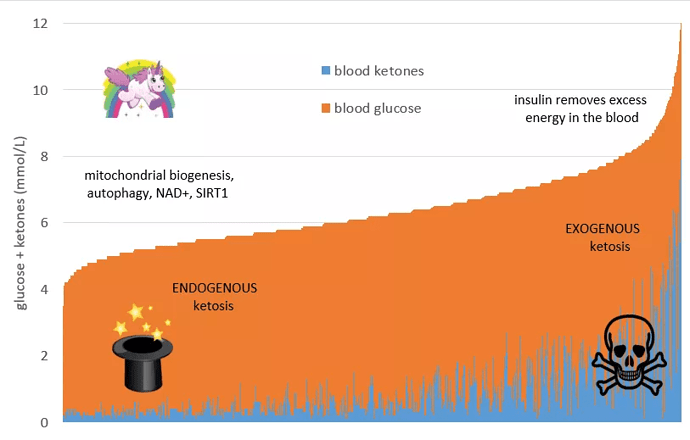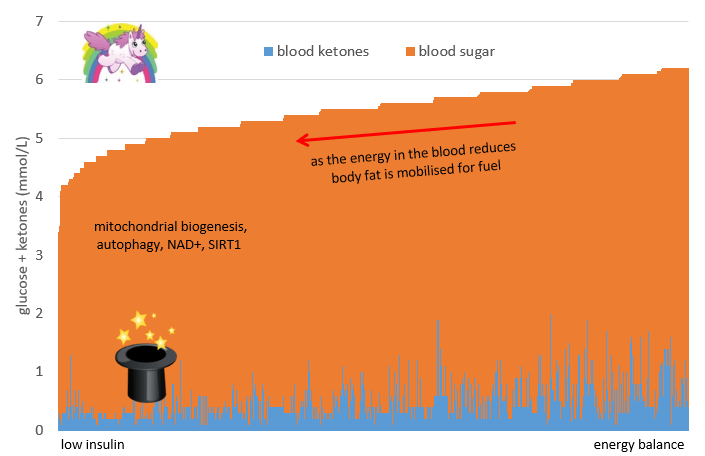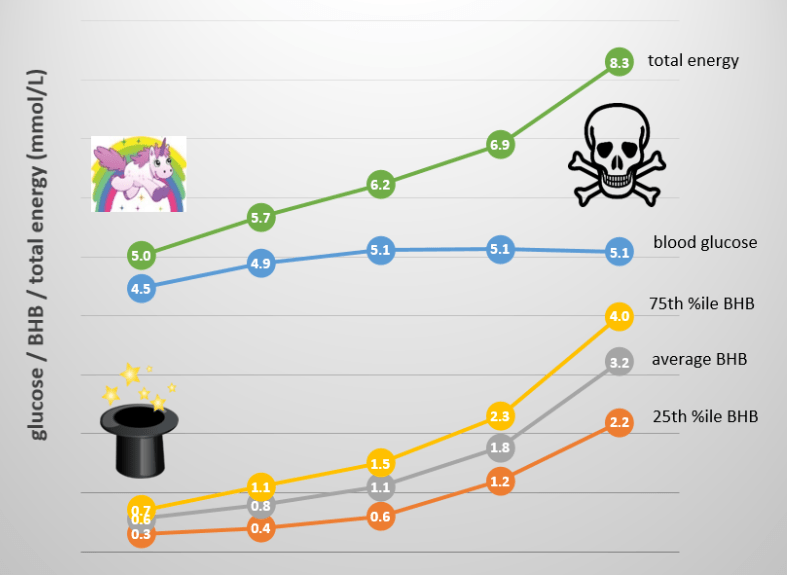Ok, this is so weird but I think I have a theory what happened here…
I’ve been in ketosis for over 4 months, zero cheats. I’ve been tossed out only a few times from restaurant mishaps, but life goes on. Getting great results from keto al this time.
Then last week I was fighting a fever and sore throat going around the school where I work. My BG was up in the 90s regularly for that week, which is high for me. I know illness can elevate it, so no worries.
But I gained weight. Weirdest thing because I’m eating the same amount or less, all high fat, low carb (<20), moderate protein. It has stayed with me for almost a week now, and I can see and feel it (although no one else would - about 6 pounds).
The ONLY thing I can imagine is that eating keto when your blood sugars are high(er) is a recipe for fat storage. Does that seem possible?
I’m over the illness (which I never really fully got because keto makes me a bad ass, thankyouverymuch) and my numbers are back to the 70s so I suspect this weight will fall back off of me. It will be interesting to see but anyone know if my theory could be correct?

 Last check it was at 5.4. My post-prandial levels are about 85, at the high end. 90s don’t really show up, ever, unless I’m sick or after a hard workout very briefly or if I got carbed accidently in a restaurant.
Last check it was at 5.4. My post-prandial levels are about 85, at the high end. 90s don’t really show up, ever, unless I’m sick or after a hard workout very briefly or if I got carbed accidently in a restaurant.

